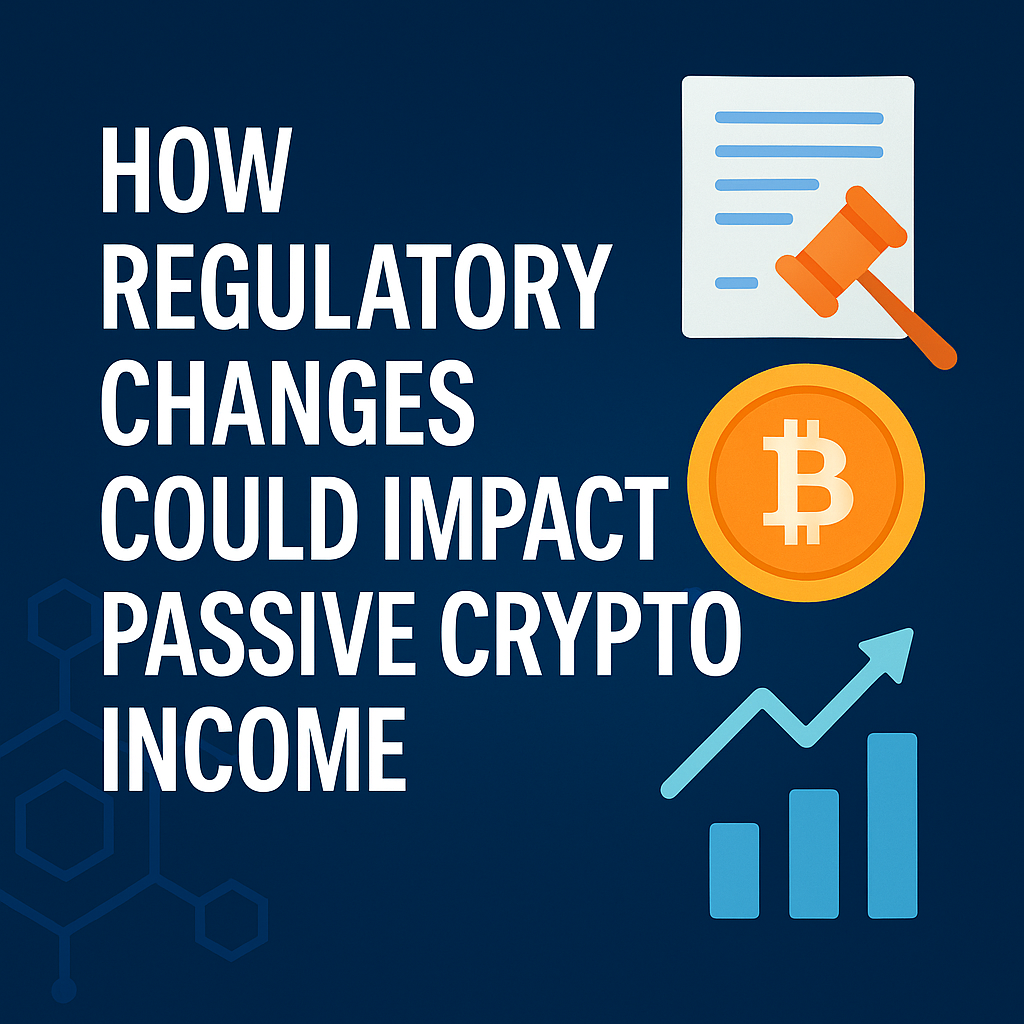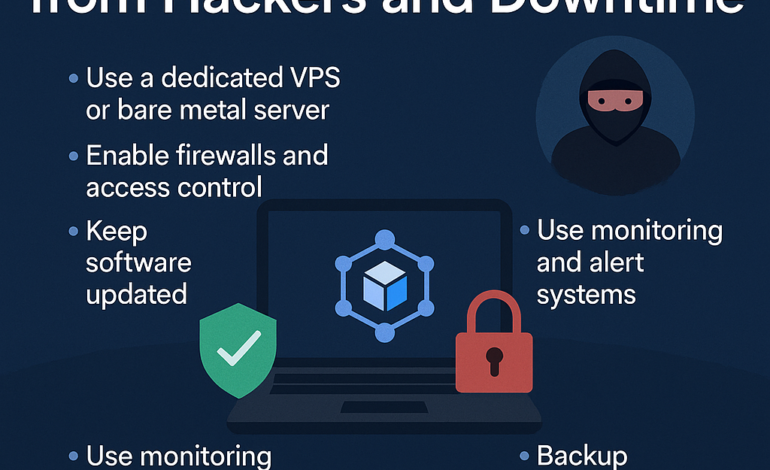Passive crypto income — whether earned through staking, running nodes, yield farming, or lending — has become one of the most attractive ways to grow wealth in the blockchain space. However, with global regulatory frameworks evolving rapidly, the future of passive crypto income might not be as straightforward as it seems.

Why Regulation Matters for Passive Crypto Income
Unlike traditional finance, the crypto world has operated in a gray area for many years. But as adoption increases and institutions enter the space, regulatory clarity is becoming essential — especially for passive income activities that generate consistent yields.
Governments and financial watchdogs are starting to scrutinize crypto yields to determine:
- Whether they should be taxed
- If certain yield-generating services qualify as securities
- How risks to retail and institutional investors should be mitigated
Key Areas of Regulatory Focus
1. Staking Rewards and Taxation
In many jurisdictions, staking rewards are now considered taxable income at the time they’re received. This means:
- You may owe taxes even before converting rewards to fiat
- Inconsistent token prices can lead to complex tax calculations
- Long-term holders could face double taxation (once at reward, again at sale)
Some governments are proposing deferred taxation models — where tax is due only upon sale — but legislation is still being debated.
2. Are Yield Platforms Offering Securities?
Some regulators (like the SEC in the U.S.) argue that staking services and yield platforms (e.g., Celsius, BlockFi) are offering unregistered securities. This classification could:
- Restrict retail access to passive income platforms
- Force platforms to register under strict financial guidelines
- Shift more opportunities to decentralized alternatives (DeFi)
Centralized providers may need licenses, insurance, and full disclosure frameworks to operate legally.
3. Node Rewards and Institutional Involvement
Running validator or infrastructure nodes also falls under the spotlight. For institutional participants:
- Node income might be treated as business income, triggering corporate taxes
- Validators may need to comply with KYC/AML rules, especially when processing third-party transactions
- In regions like the EU or Singapore, operating a node could require a tech or financial license
Retail users running nodes from home might remain exempt, but that’s likely to change with time.
4. Stablecoins and Interest-Bearing Accounts
Many crypto users earn passive income by depositing stablecoins into high-yield protocols or platforms. However:
- Regulatory bodies may treat interest-bearing stablecoin accounts like savings accounts, requiring licensing and oversight
- Custodial risk is a huge concern — many platforms could be forced to offer insurance or meet capital reserve requirements
- Some stablecoins themselves could be reclassified as securities or regulated assets
Regional Differences in Crypto Regulation (2025 Outlook)
| Region | Current Stance on Passive Income | Key Trends to Watch |
|---|---|---|
| USA | Heavily scrutinized | SEC targeting staking & yield |
| EU | Pro-regulation, MiCA in effect | Clearer guidelines for DeFi & staking |
| UAE | Crypto-friendly | Encouraging node setups and institutional participation |
| Singapore | Structured framework | Focus on AML/KYC compliance |
| India | Tax-heavy, cautious | Passive income taxed at high rates |
What Investors Can Do to Stay Compliant
- Track All Passive Income Sources
Use tools like CoinTracking, Accointing, or Koinly to automate your income and tax reporting. - Know Your Jurisdiction
Laws vary significantly across countries. Always stay updated on the latest rules in your region. - Diversify Income Streams
Don’t rely solely on centralized staking or lending. Explore decentralized options with lower regulatory exposure. - Work With a Tax Professional
Especially if you’re earning substantial rewards, consult a crypto-savvy accountant. - Use Licensed Platforms
Choose staking-as-a-service providers or wallets that are compliant and transparent.
Final Thoughts
The regulatory landscape is evolving fast — and while it brings uncertainty, it also adds legitimacy to the crypto space. Passive crypto income may face tighter scrutiny, but with the right planning, it can remain a reliable strategy in your digital asset portfolio.
By staying informed and proactive, you can navigate these changes confidently and continue to earn from your crypto holdings — no matter where the laws land.




